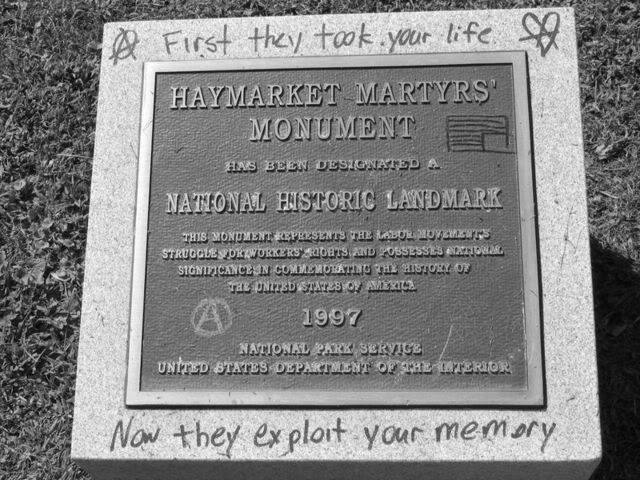Your 8 hour Work Day Was Fought For With Blood
May Day's origins.
"On May 4, 1886 a town meeting was called in Chicago's Haymarket Square by anarchists and labor activists. As the peaceful assembly came to a close, 180 police officers stormed the meeting, demanding it disburse. Suddenly an unknown assailant threw a bomb into the crowd killing a police officer and injuring several others. The police responded instantly by shooting and clubbing wildly into the crowd, killing 7 other fellow police officers, injuring 60 more and killing and injuring an unknown number of civillians at the meeting."
"Several police officers, aside from Degan, appear to have been injured by the bomb, but most of the police casualties were caused by bullets, largely from friendly fire. In his report on the incident, John Bonfield wrote he "gave the order to cease firing, fearing that some of our men, in the darkness might fire into each other". An anonymous police official told the Chicago Tribune
"a very large number of the police were wounded by each other's revolvers. ... It was every man for himself, and while some got two or three squares away, the rest emptied their revolvers, mainly into each other."

"On May 4, 1886 a town meeting was called in Chicago's Haymarket Square by anarchists and labor activists. As the peaceful assembly came to a close, 180 police officers stormed the meeting, demanding it disburse. Suddenly an unknown assailant threw a bomb into the crowd killing a police officer and injuring several others. The police responded instantly by shooting and clubbing wildly into the crowd, killing 7 other fellow police officers, injuring 60 more and killing and injuring an unknown number of civillians at the meeting."
"Several police officers, aside from Degan, appear to have been injured by the bomb, but most of the police casualties were caused by bullets, largely from friendly fire. In his report on the incident, John Bonfield wrote he "gave the order to cease firing, fearing that some of our men, in the darkness might fire into each other". An anonymous police official told the Chicago Tribune
"a very large number of the police were wounded by each other's revolvers. ... It was every man for himself, and while some got two or three squares away, the rest emptied their revolvers, mainly into each other."






0 Comments:
Post a Comment
<< Home